![]()
![]()
![]()
Use LEFT and RIGHT arrow keys to navigate between flashcards;
Use UP and DOWN arrow keys to flip the card;
H to show hint;
A reads text to speech;
129 Cards in this Set
- Front
- Back

Abdication
|

Resignation of monarch from their political role
|
|
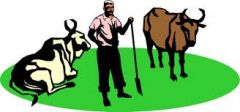
Agrarian
|

Nation whose economy is based primarily on producing foodstuffs in the countryside
|
|
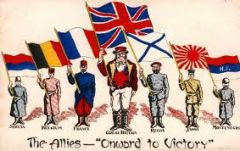
Allies
|

The group of countries who united to fight the Germans' Axis in WWI
|
|
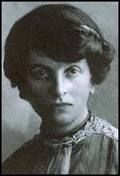
Armand
|

Inessa Armand became Lenin's mistress after meeting Lenin in Paris in 1910; she was a passionate revolutionary
|
|
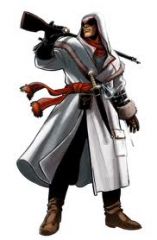
Assassination
|

Murder of a public figure for political reasons
|
|
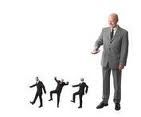
Autocratic
|

A political system where the ruler has complete political power; unlimited by formal constitution or a parliament
|
|
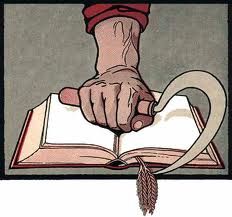
Bolshevik
|

means 'majority'; taken by Lenin and followers after the split in the SD Party in 1903
|
|
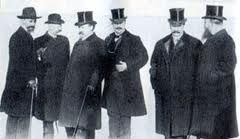
Bourgeoisie
|

Marxist term for exploiting capitalist middle class
|
|
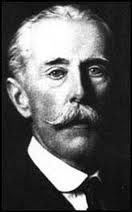
Buchanan
|

British Ambassador in Russia from 1910 to 1918
|
|
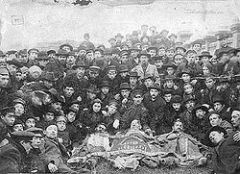
Bund
|

Revolutionary Jewish Organisation
|
|
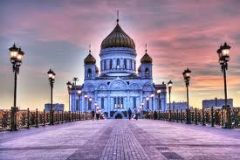
Bureacracy
|

System of officials that ensure a country operates effectively
|
|
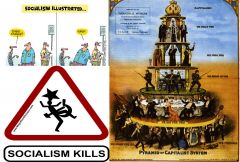
Capitalism
|

Economic system whereby investment and ownership of the means of production distribution and exchange of wealth is privately owned
|
|
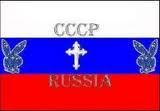
CCCP
|

Central Committee of the Communist Party
|
|
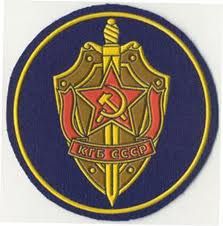
Cheka
|

All Russian Extraordinary Committee for fighting Counter-Revolution i.e. Bolshevik Secret Police!
|
|
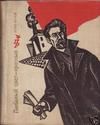
Chernov
|

Revolutionary who was involved with the Socialist Revolutionaries and later the Mensheviks
|
|
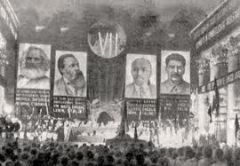
Comintern
|

The Communist International Organisation; established in 1919 for the purpose of bringing revolution in other countries
|
|
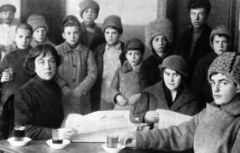
Commissar
|

Minister or Official in the Soviet Govt or CPSU (while the new Bolshevik govt was officially called the 'Government of People's Commissars', the individual ministerial roles were renamed Commissar)
|
|
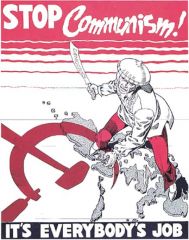
Communism
|

Ideology with the goal of a classless society whereby the system of economic and social organisation is premised on the idea that industry, capital, land and other means of production are owned and controlled by the community as a whole.
|
|
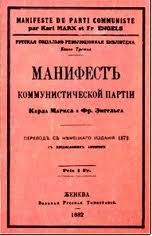
Communist Manifesto
|

Published by Karl Marx and Friedrich Engels in 1848 - promoted the decline of capitalism and the inevitable rise of communism
|
|
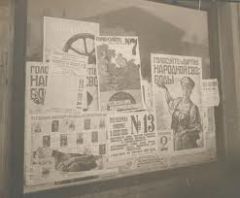
Constituent Assembly
|

The name given to an elected political group
|
|
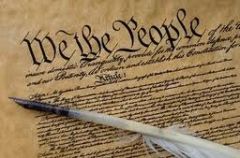
Constitution
|

The set of rules by which a country is governed
|
|
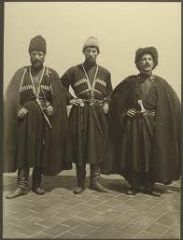
Cossacks
|

A fiercely independent people from the region on the Don River near the Black Sea
|
|
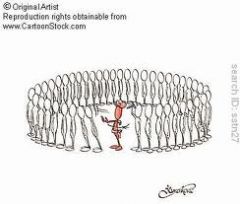
Coup d'etat
|

A forced replacement of the govt
|
|
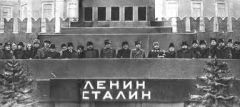
CPSU
|

The Communist Party of the Soviet Union (Formerly the Bolshevik Party)
|
|
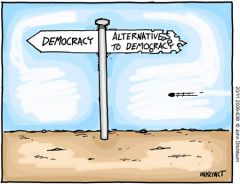
Democracy
|

A liberal concept where citizens of a country have a say in how the country is to be governed and by whom
|
|
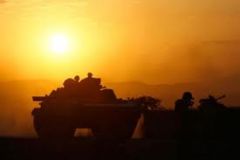
Diktat
|

A settlement imposed by threat of force
|
|
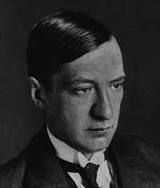
Dual Government
|

The term given to the eight-month period between February and October 1917
|
|
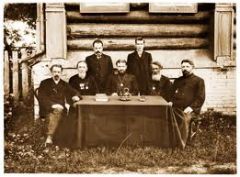
Duma
|

The Imperial Russian Parliament between 1906 - 1917 (Russian word for elected parliament)
|
|
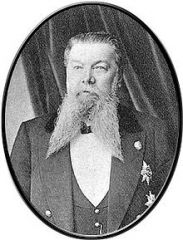
Durnovo
|

A member of the upper class who became Minister of the Interior under PM Witte
|
|
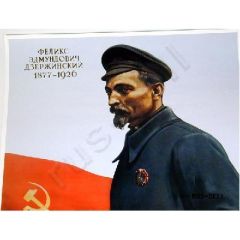
Dzerzhinsky
|

The Chairman of the powerful secret police organisation, the Cheka
|
|

Economic
|

Theme that involves any issues to do with money (taxation, inflation, unemployment, wages, prices)
|
|
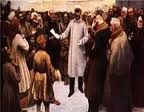
Edict of Emancipation
|

Issued in 1861 to provide greater freedom for the Russian serfs (peasants)
|
|
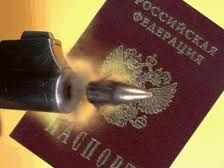
Emigres
|

Those who fled Russian to avoid Govt Oppression
|
|
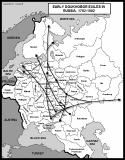
Exile
|

Many revolutionaries were imprisoned by the Tsar in the isolated region of central Russia called Siberia or banished from Russia altogether
|
|
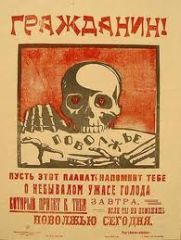
Famine
|

A desperate situation where food is scarce, resulting in severe malnutrition and death
|
|
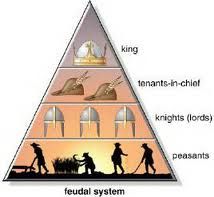
Feudal
|

The medieval social system where the privileged nobles controlled the hardworking peasants
|
|
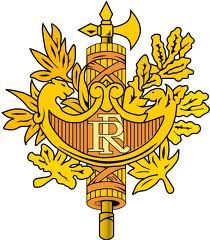
French Revolution
|

1789 revolution that replaced the absolute monarch with a republic that inspired many revolutionaries including Lenin
|
|
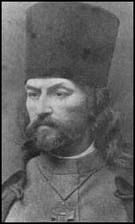
Gapon
|

Father Gapon was an active revolutionary who led the peaceful march to petition the Tsar for political representation and better working conditions
|
|
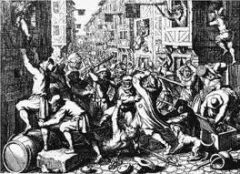
Ghetto
|

The Jewish quarters in a town or city
|
|
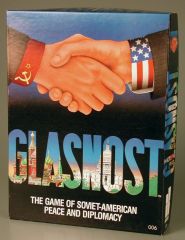
Glasnost
|

Russian for 'openness', adopted as a description of the new Soviet approach of the late 1980s and 1990s
|
|
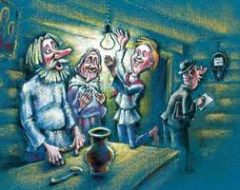
GOELRO
|

A Special State Commission, established in 1920 to organise the electrification of Russia
|
|
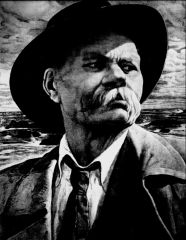
Gorky
|

Maxim Gorky was a famous revolutionary whose writings inspired and mentored aspiring revolutionaries
|
|
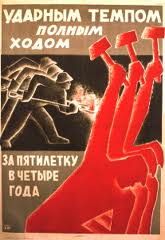
Gosplan
|

Superceded 'Vesenkha' in 1921 as the body responsible for integrated nations' economic planning
|
|
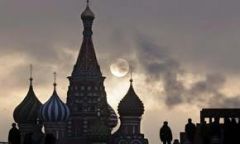
Government
|

The official Political body that runs the country
|
|
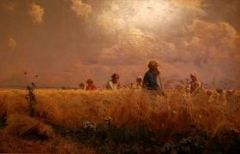
Harvest
|

Collection of mature grain for eating, storage or market
|
|
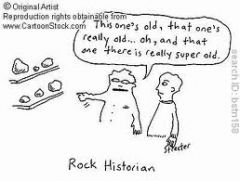
Historians
|

Fabulous men and women who attempt to make sense of the past and who usually specialise in one country or period of history
|
|
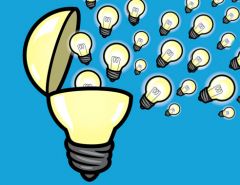
Ideas
|

Abstract concepts or beliefs that provide hope and a solution to problems
|
|

Ideology
|

Set of ideas or beliefs that characterise a particular revolutionary movement
|
|
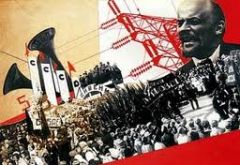
Industrialisation
|

Process of making a country more modern by developing machines and factories
|
|
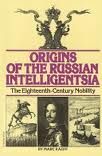
Intelligentsia
|

The educated and more enlightened members of Russian society, who were usually supporters of reform (thinkers, writers, artists)
|
|
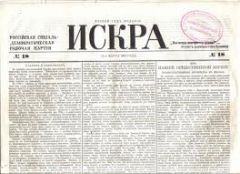
Iskra
|

Russian for 'the spark', an SD newspaper founded by Lenin and Martov in 1898 (taken from a phrase used by the Decembrists of 1825 - 'a spark will start a big blaze')
|
|

Izvestiya
|

Russian for 'the news', taken as the title of a Bolshevik newspaper
|
|
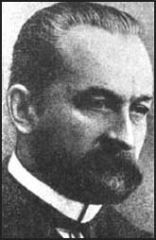
Kadets (KDs)
|

The Constitutional Democrats; a liberal party founded in 1905 - conservative revolutionary group which played an important role in the First Duma of 1906 and in the Provisional Govt of 1917.
|
|
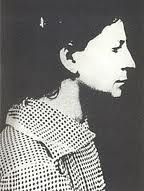
Kaplan
|

A radical anarchist who shot Lenin twice in a failed assassination attempt in August 1918
|
|
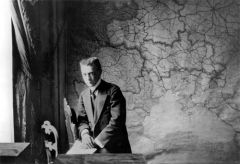
Kerensky
|

Key member of the PG who later became the PM
|
|
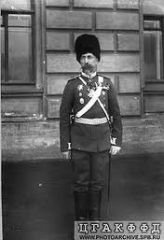
Khabalov
|

General Khabalov was the Chief of the Petrograd Military District during the Feb Revolution
|
|
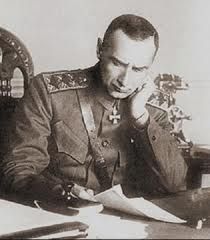
Kolchak
|

Admiral who led a White Army against the Feb Revolution
|
|
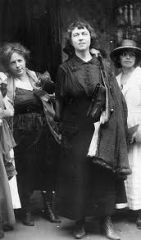
Koliontai
|

A prominent Bolshevik revolutionary who became the first woman selected to join Lenin's powerful Central Committee
|
|
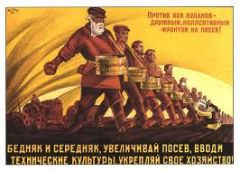
Kolkhozy
|

The Collective farms
|
|
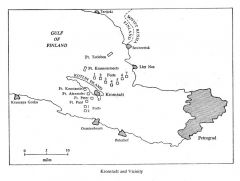
Kronstadt
|

A major naval base situated on an island near St Petersburg
|
|
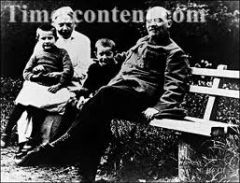
Krupskaya
|

Lenin's wife; they met in Siberia after she had also been exiled there for her own revolutionary activity
|
|
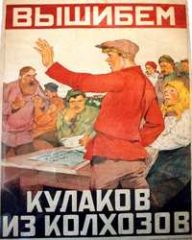
Kulaks
|

The class of rich peasants - derogatory name given by Lenin's govt to peasants who were deemed to be selfishly hoarding grain for their benefit rather than that of the nation.
|
|
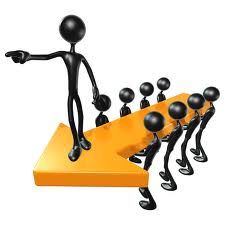
Leaders
|

Men and women who influence ordinary people
|
|
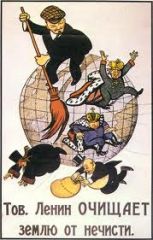
Lenin
|

The most recognised Marxist revolutionary who led the Bolshevik Party and eventually overthrew the PG in October 1917
|
|
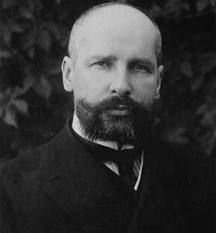
Liberal Movement
|

Argued that the dire need for change did not require an overthrow of the tsarist system
|
|
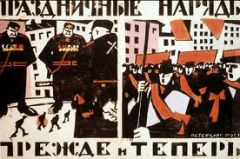
Martov
|

A serious disagreement with Lenin led to the establishment of the Mensheviks in 1903; Martov was elected their first leader
|
|

Marxism/Leninism
|
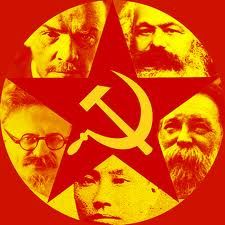
The official Bolshevik/Communist ideology based on the ideas of Karl Marx
|
|
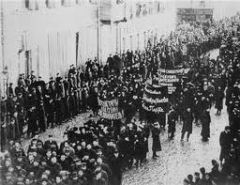
Masses
|

General name given to the anonymous crowds of ordinary workers and peasants
|
|
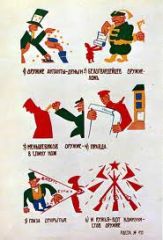
Mensheviks
|

Word meaning 'minority' used to describe the followers of Plekhanov after the split in the SD Party in 1903 from the Bolsheviks
|
|
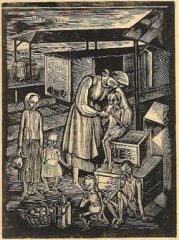
Mir
|

The Village Commune where Village governments that were formed under tsarism to provide cooperation and coordination in rural areas
|
|
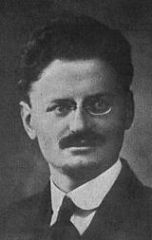
MRC
|

The Military Revolutionary Committee of the Petrograd Soviet - influential body established by the Bolsheviks in 1917 and coordinated by Trotsky to effect the October Revolution
|
|
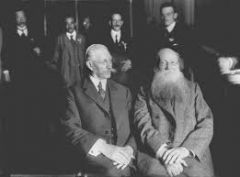
Miliukov
|

Member of the conservative Kadet Party who opposed Rasputin and became leader of the PG in 1917
|
|
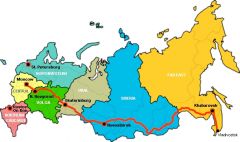
Moscow
|

Along with Petrograd (St Petersburg), a major city in Russia
|
|
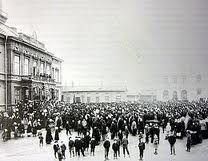
Movements
|

Popular outbreaks of mass actions by ordinary people
|
|
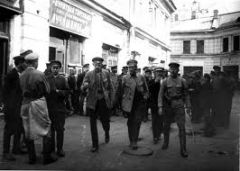
Narkompod
|

The People's Commission of Supply
|
|
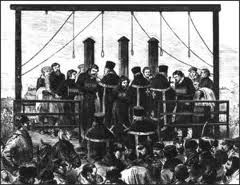
Narodniks
|

Russian for 'the people'; the Populist movement that looked to the peasants to take the lead in the transformation of Russia
|
|
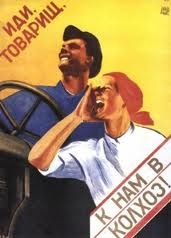
NEP
|

The New Economic Policy introduced by Lenin in 1921
|
|
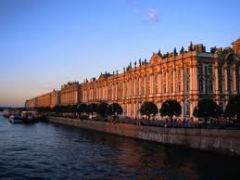
Neva River
|

Majestic river that flowed through St Petersburg directly behind the Tsar's Winter Palace
|
|
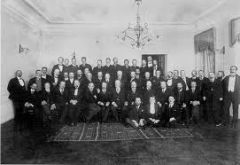
Octobrists
|

The Moderate Reformist Party, established in 1903
|
|
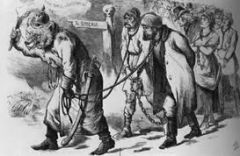
Okhrana
|

The Tsarist Secret Police
|
|
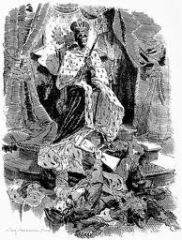
Old Regime
|

The revolutionary name given to the period ruled by the tsars, indicating that the revolutionaries had introduced a new and better society
|
|
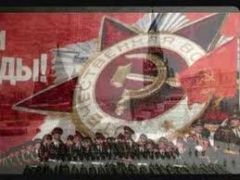
Orgburo
|

The CCCP's Bureau of Organisation
|
|
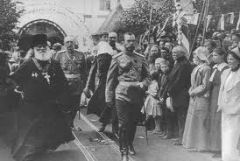
Orthodox Church
|

Traditional Russian Orthodox Church that had supported and benefited from the rule of the tsars
|
|
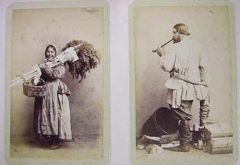
Peasants
|

The lowest class in the social system who were dependent on making a living from either owning or renting land
|
|
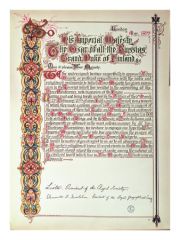
Petition
|

Written document signed by a large number of people recommending a specific plan of action be undertaken by govt
|
|
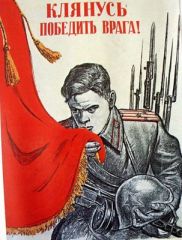
Petrograd Soviet
|

Powerful political body first formed by Trotsky during the 1905 Revolution but then re-formed on 28 February 1917
|
|
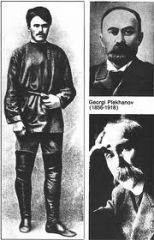
Plekhanov
|

considered to be the father of Russian Marxism
|
|
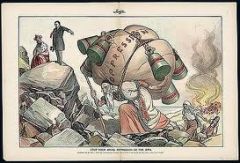
Pogroms
|

State Organised Persecution of the Jews
|
|
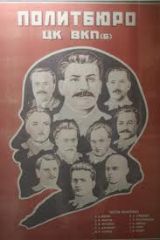
Politburo
|

The Political Bureau; the inner cabinet of the CCCP
|
|
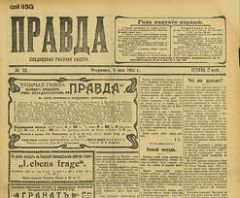
Pravda
|

Russian for 'truth'; taken as the title of the Bolshevik Newspaper established in 1912
|
|
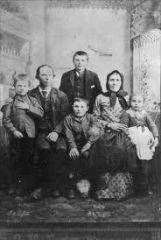
Privileges
|

Economic and social benefits given to the upper social classes due to birth rather than talent or merit
|
|
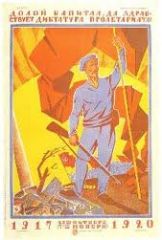
Proletariat
|

The Marxist term for the Revolutionary Working Class of industrial workers
|
|
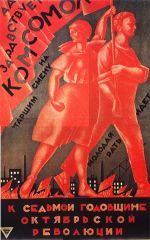
Propaganda
|

Creation of powerful visual or verbal material that presents a point of view from one dominant perspective
|
|
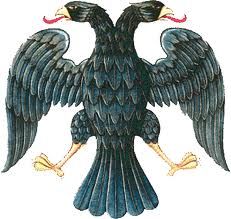
Provisional Govt
|

A temporary committee formed during the February Revolution but becoming the new govt after Tsar Nicholas II abdicated
|
|
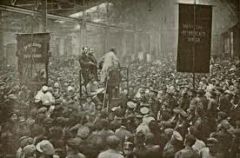
Putilov Steel Works
|

One of the largest factories in St Petersburg, employing over 8000 men
|
|
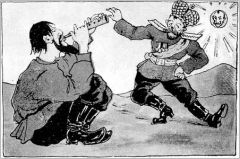
Rasputin
|

A Siberian peasant who had great influence over Tsarina Alexandra and Tsar Nicholas II
|
|
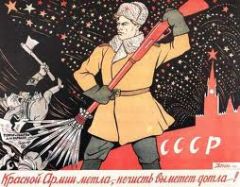
Red Army
|

The army of the Soviet Union
|
|
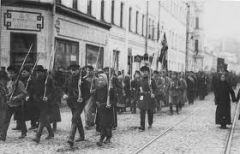
Red Guard
|

Group of workers that was hastily formed into a fighting group to defend Petrograd against the advancing Kornilov
|
|
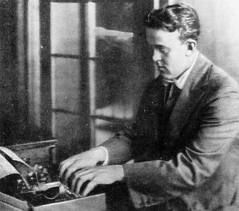
Reed
|

American journalist who was in Petrograd during the revolution
|
|
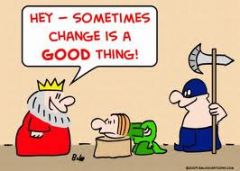
Reforms
|

The healthy process of making political, economic or social changes to make a country operate more effectively
|
|
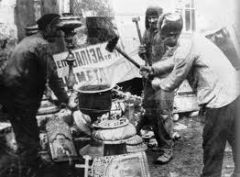
Requisitioning
|

Confiscation of goods, often foodstuffs such as grain, often with a high degree of force
|
|
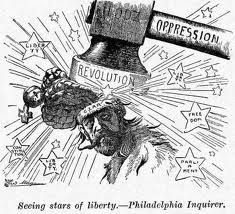
Revolution
|

Process of massive political upheaval that changes the way a country is governed; a vertical shift in power from an absolute monarch to a popular govt ruling on behalf of the people
|
|
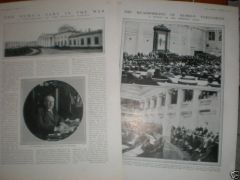
Rodzianko
|

Head of the Fourth Duma (1912-1917) who formed the PG after Tsar Nicholas II abdicated
|
|
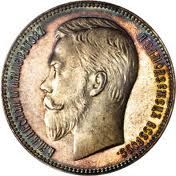
Rouble
|

Russian currency
|
|
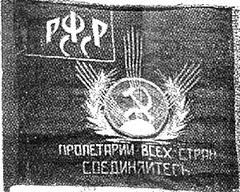
RSFSR
|

The Russian Socialist Federal Soviet Republic; the title of the Soviet state between 1918 - 1922
|
|
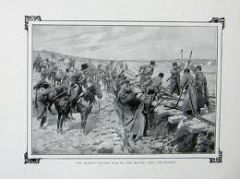
Russo Japanese War
|

Began in 1904 and ended disastrously for the Russian navy in 1905 with the comprehensive defeat in the Tsushima Strait
|
|
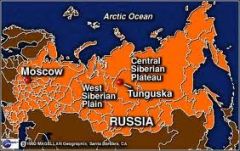
Siberia
|

The remote but vast central area in Russia whose isolation and harsh conditions limited population numbers and made it ideal for exiling revolutionaries and other dangerous prisoners
|
|
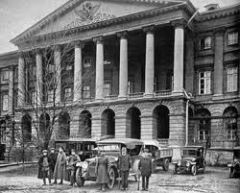
Smolny Institute
|

The building became the HQ for the new Bolshevik govt as well as the Petrograd Soviet in 1917
|
|
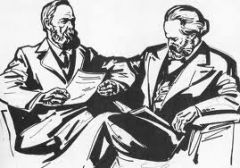
Socialism
|

Ideology where workers' representatives seize power and rule on behalf of the proletariat; comes after the stage of capitalism that is necessary before moving to classless utopia
|
|
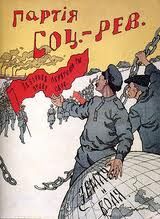
Socialist Revolutionary Party
|

The most popular Marxist party in Russia because it represented the interests of the peasants (Trudoviks were the )labour group on the moderate wing of the SRs)
|
|
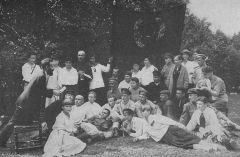
SDs
|

The Social-Democrats Workers' Party; divided into Bolshevik and Menshevik wings in 1903 - founded by Plekhanov in 1898 on Marxist principles
|
|
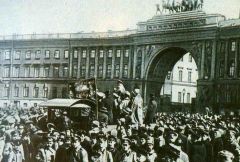
Soviets
|

Local revolutionary groups formed to listen to ordinary people's debates - Councils of workers, soldiers and sailors first formed in 1905
|
|
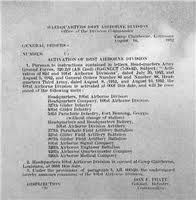
Soviet Order No. 1
|

The Order given by the Petrograd Soviet one day after its formation that no military orders from the PG were to be obeyed unless also approved by the Soviet
|
|
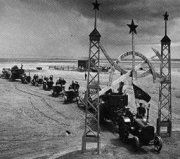
Sovkhozy
|

State Farms
|
|
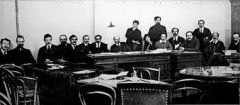
Sovnarkom
|

The Council of People's Commissars (the government of the USSR) - powerful 15 member cabinet of ministers in the new Bolshevik govt of 1917
|
|
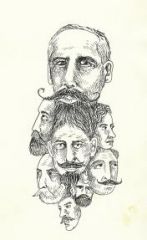
Stolypin
|

PM in 1906 to control the new Dumas and restore public faith in the Tsar
|
|
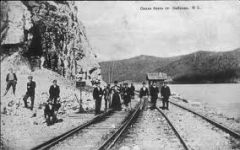
Trans Siberian Railway
|

Completed by Witte and opened in 1905, this railway travelled across the length of Russia from Moscow to Vladivovostok and therefore had major benefits for trade, the transport of goods and troop movements
|
|
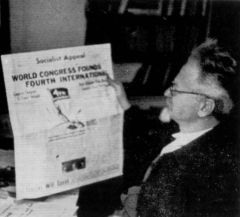
Trotsky
|

A radical Marxist revolutionary who joined with Lenin and the Bolsheviks in 1917 to form the new govt after the October Revolution 1917
|
|
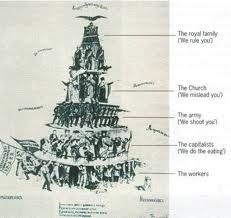
Tsar
|

Russian emperor (also spelt czar)
|
|
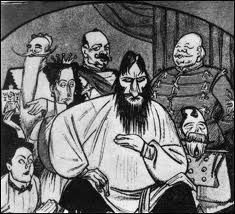
Tsarina
|

Russian empress; wife of the Tsar
|
|
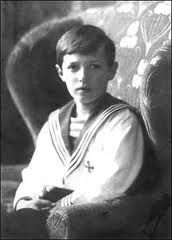
Tsarevitch
|

Heir to the Russian throne; the Tsar's eldest son
|
|
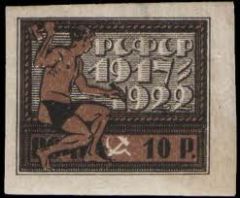
USSR
|

The Union of Soviet Socialist Republics, which replaced the RSFSR as the official title of the Soviet State after 1922
|
|
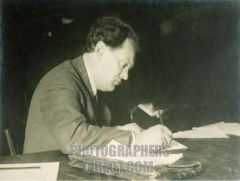
Vesenkha
|

The Supreme Council of the National Economy
|
|
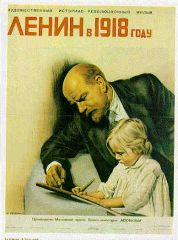
Vyperod
|

Russian for 'forward', adopted by Lenin as the title of a Bolshevik journal
|
|
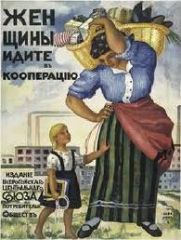
War Communism
|

Series of economic policies instituted between 1918 and 1920 to attempt to win the Civil War
|
|
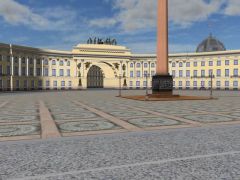
Winter Palace
|

The Tsar's main palace in the heart of St Petersburg
|
|
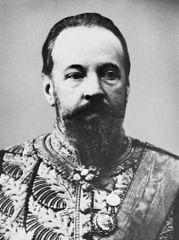
Witte
|

Influential Finance Minister and later PM who rapidly increased Russian industry and completed the Trans Siberian Railway
|
|

Zemgor
|

The Union of municipal councils and 'zemstva' that combined in 1914 to further the Russian war effort
|
|
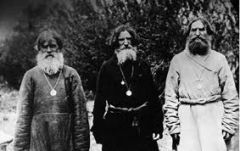
Zemstvos
|

Local Govt Councils established in the countryside in 1864 - made up of elected representatives of peasants and landowners
|

